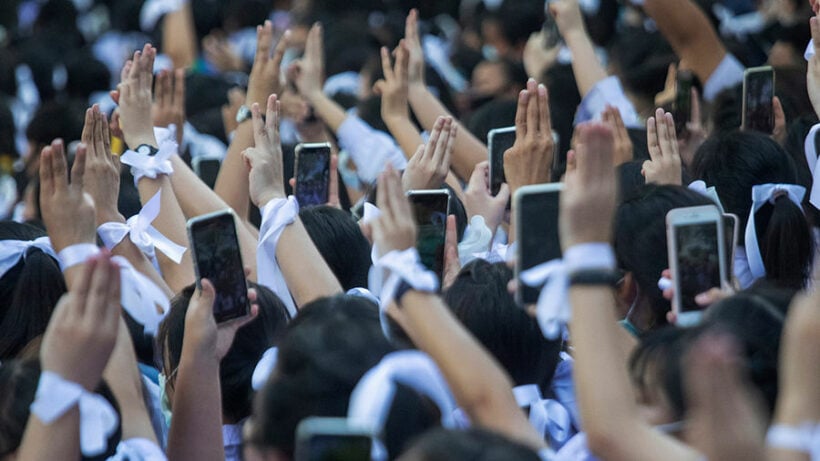Police deny plans to restrict online access, as media groups issue warning

Thai police have confirmed the legitimacy of a document released by the Free Youth group, which reveals that their Facebook page was targeted by authorities for allegedly spreading disinformation and inciting civil unrest, in breach of the State of Emergency, enacted last Thursday morning.
The Free Youth group have now moved to “Telegram”, a popular messaging and telephony app, after their Facebook page became the subject of scrutiny. However, rumours abound that the government is planning to block access to Telegram, as more activists adopt it as a communication tool. Telegram messages are encrypted and impossible to track.
Meanwhile, several media groups have warned the government not to further infringe on press freedoms, after a leaked order from the government’s Centre for the Resolution of Emergency Situation revealed that some news outlets may be in the firing line. The CRES order accuses 5 media outlets of allegedly breaching the State of Emergency and is threatening to remove offending content.
“As it appears there are television broadcasts of contents deemed to threaten national security or good morals by presenting certain contents from Voice TV, Prachatai.com, The Reporters, The Standard, and Free Youth movement, the national police chief, who is in charge of resolving the serious emergency situation thus orders the National Broadcasting and Telecommunications Commission and the Digital Economy and Society Ministry to examine and suspend the broadcast or delete those contents from the computer system in line with their authority and responsibility.”
Local media groups have come out in opposition to the threats, calling on the government to respect the freedom of the press and warning that an attempt to restrict access to information will only serve to worsen anti-government sentiment. In their statement, they also call on all media groups to ensure reporting is fair and accurate and does not incite violence or twist the facts.
Academics from the faculty of journalism and mass communications at Thammasat University, have also issued a statement in which they say citizens have a right to access information and the government should refrain from interfering with the media.
Meanwhile, the Foreign Correspondents’ Club of Thailand has also strayed into the exchange, expressing concern over the latest development, which it says, “makes the government appear heavy-handed and unresponsive to criticism, and could stir up even more public anger. Bona fide journalists should be allowed to report important developments without the threat of bans, suspensions, censorship or prosecution hanging over them.”
Assistant national police chief Jaruwat Wisaya says police did refer a number of social media accounts and media outlets to the National Broadcasting and Telecommunications Commission and the Digital Economy and Society Ministry. Jaruwat says officers needed to know if some protesters’ social media accounts, as well as a number of media outlets, were violating the emergency decree.
Jaruwat adds that normal procedures still apply, and police would need to apply for a court order before any suspension of offending media channels could take place. He says a committee formed under the emergency decree will monitor news and information and inform police if action needs to be taken. Meanwhile, the Digital Economy and Society Minister, Buddhipongse Punnakanta, points out that none of the offending media outlets mentioned have been banned.
“Initially the NBTC or agencies concerned will ask them over for talks and urge them to be careful. But the messages (deemed inappropriate and still on the website) should be deleted.”
SOURCE: Nation Thailand | Bangkok Post
Latest Thailand News
Follow The Thaiger on Google News:


























